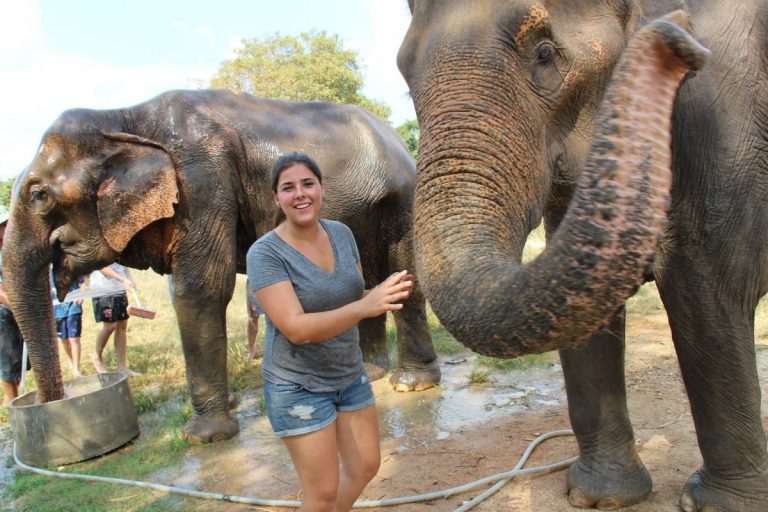
Thailand shares the top spot with South Africa as UK gap-year students’ favourite destination for the third consecutive year, data from responsible travel experts Oyster Worldwide showed this week.
Both countries are key locations for Oyster Worldwide’s animal welfare projects, which were the organisation’s most popular programmes over the last three years. In Thailand, volunteering at elephant sanctuaries and wildlife sanctuaries proved to be top choices in 2016.
What makes the country so appealing to school-leavers?
“Good food, good weather and beach vibes,” an Oyster spokesman told Study International News, echoing recent media reports pointing to these same elements.
“Thailand is easy to travel around, everyone knows someone who has been there and there is loads of beautiful scenery,” the spokesman said.

What free time looks like during these foreign volunteer trips. Source: Oyster Worldwide
Then there’s cheap airfares to and within the country as well as Thai people’s good knowledge of English. What’s not to love?
Indeed, Thailand has been the go-to country for Brits – according to booking data by long-haul travel company Southall Travel, who chose Bangkok as their top choice for city breaks in January, and Phuket as their third most popular beach holiday destinations for 2017.

Bangkok is top city break destination for Brits. Source: Reuters/Jorge Silva.
Oyster’s data comes in the wake of low levels of confidence in the post-Brexit job market among fresh graduates, driving many to apply for postgraduate study, travel or take temp jobs in lieu of joining the workforce.
Close to three-quarters of the final year students surveyed believe Brexit has left the country with fewer graduate jobs for them this summer. This is the lowest level of confidence in five years, research by recruitment consultancy High Flier Research Limited revealed last month.
It's a "tale of two camps" for new #graduates. Read the full article by @TheTelegraph__ here: https://t.co/Xs4QNLGPHD #HighFliers #JobMarket
— Eternal Jobs (@EternalJobs) July 13, 2017
One in eight said they planned to take “time off” or travel.
Oyster also notes the Association of British Travel Agents charted a 20 percent increase for bookings among gap year companies.
Gap year typically refers to a year-long break between secondary school and higher education, though it is sometimes used to describe a break taken after graduating university or from work.
Oyster Worldwide travel adviser Georgie Collcutt says:
“Taking a gap year after school or college is an exciting way for young people to broaden their horizons and explore the world.”
In Fall 2016, other popular Oyster projects for UK school- and college-leavers include turtle conservation in Costa Rica and volunteering at primate rehabilitation centres in South Africa. The company predicts Thailand’s animal welfare programmes will prove to be in vogue again in 2017.
This isn’t the first time Brits are opting for gap years instead of going to university or applying for jobs. During the 2008 recession, a survey by foreign exchange group Travelex found the majority of Britons who have lost their jobs opted to take time off and travel for three months on average as their post-redundancy plan.
Canada was the top choice for this generation of “grown-up gappers” then, with Japan, Hawaii, Indonesia and the Philippines coming close.
Liked this? Then you’ll love these…
China: SAT ban brings good business to travel agencies
Despite travel ban, foreign students still want to go to the US – study







